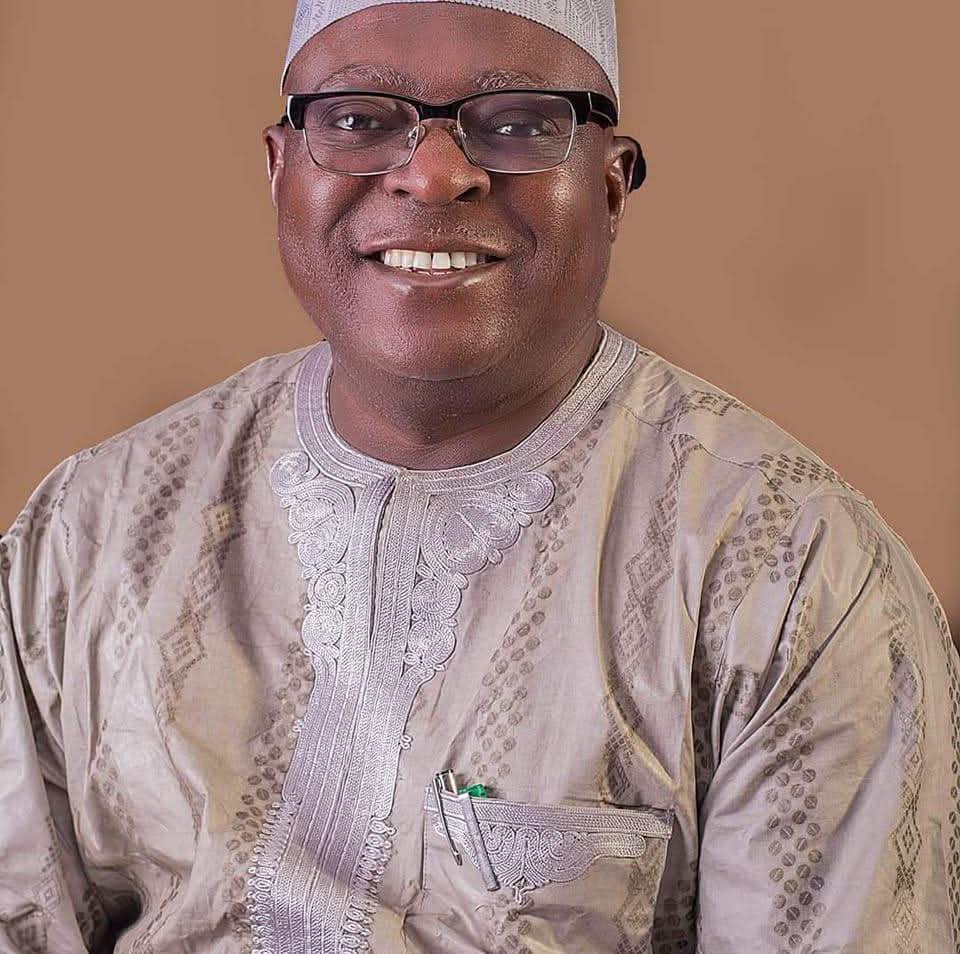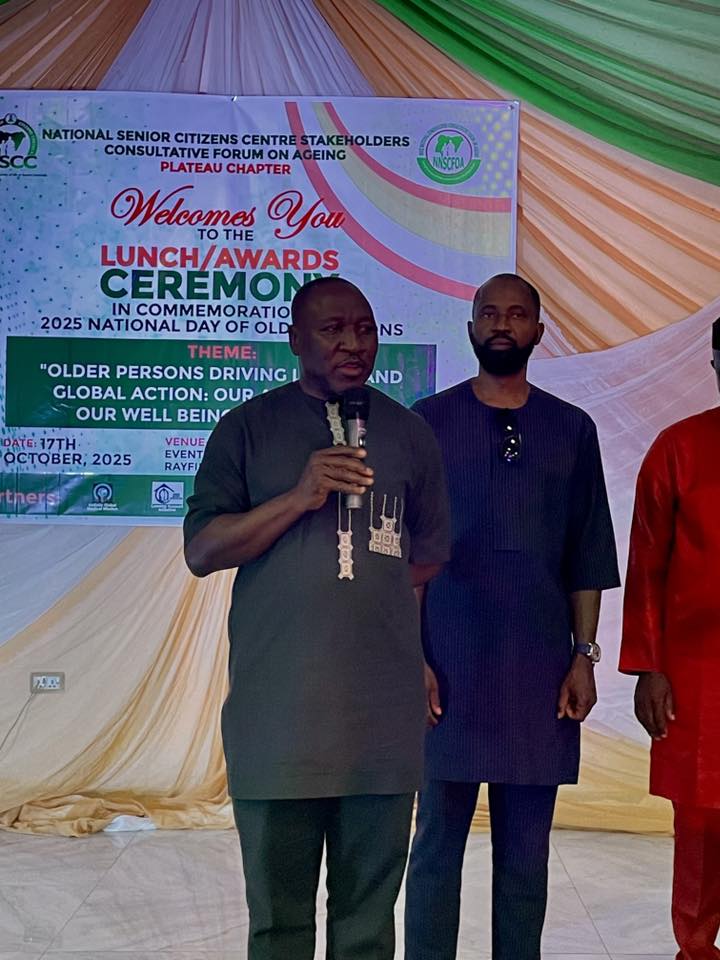
“When I opened my eyes after two days in a hospital bed, I never imagined I had speak clearly again, let alone walk unaided. But God was faithful, and JUTH was more than I ever expected,” recalls Mr. Dan Manjang, a veteran journalist, public relations expert, and former Commissioner for Information and Communication, as well as Science and Technology in Plateau State under the Simon Lalong administration. What started as a routine outing in Jos turned into a life-threatening ordeal that would forever alter the way he viewed healthcare, and himself.
It was just another normal day. Mr. Manjang had gone about his business on Tafawa Balewa Street, Jos, with no hint of what was to come. As he drove home through the Nigeria Standard Road to Jiyep, a reckless decision made by a group of young mechanics altered his journey.
Quoting secondary sources, Manjang said: “They had been given a vehicle to repair in Farin Gada. But instead of staying put, they took the vehicle into town. On their way back, they were rushing. Just after passing the Police Headquarters, they lost control, veered off their lane and crashed into my car head-on. I was told one of them died on the spot, while the other two later passed away in hospital. I was unconscious for two days.”
“I was initially taken to Plateau State Specialist Hospital, where doctors worked to stabilize me. I had multiple injuries. My right wrist was broken in two places, a deep cut on my right leg, and my left eye was practically out of its socket. I also lost some teeth. The staff there managed to keep me alive until I was referred to JUTH for more advanced treatment.”
“I was overwhelmed by the level of care. From the moment I was wheeled in, I was attended to by a team of specialists: orthopedic surgeons, ophthalmologists, dental surgeons, maxillofacial experts, and even neurosurgeons. The Chief Medical Director, Dr. Pokop Bupwatda, personally ensured that I was receiving top-notch treatment. He visited my ward not once, but several times, and even followed up via phone calls to check on my recovery.”
He continues: “The nurses didn’t just do their jobs, they gave me hope. Even in the dead of night, they came to give me my drugs, change my dressings, check my blood pressure, and ensure my oxygen levels were stable. It was not just treatment; it was genuine compassion.”
“Before this experience, I never considered JUTH as my go-to hospital. I had my biases based on hearsay. But when I stepped into the Eye Clinic, the Dental and Maxillofacial Units, I was dumbstruck. The equipment was world-class. I have visited other teaching hospitals across the country either as a journalist or government official, but I had never seen anything quite like what JUTH offers.”
He spoke glowingly of the operating theatre: “It was spotless, modern, and well-organized. Everything worked. From preparation to post-operation, it felt like I was in a first-world hospital.”
JUTH, located at its permanent site in Lamingo, Jos, was established in 1981 and has steadily grown to become one of Northern Nigeria’s foremost tertiary health institutions.
“I met people I never imagined I had cross paths with. Prof. Hyat, Prof. Wade, Dr. Ben, who handled my maxillofacial injuries, were unique. The radiologist, Dr. Danbaram Marap, a young and committed professional, ensured all scans and tests were done without delay. These were people who did not treat me like just another patient, but like someone whose life mattered.”
Manjang beams with pride when he speaks of the camaraderie he found: “The accident has broadened my social network. I now have enduring relationships with people whose expertise and kindness helped save my life. And yes, even the cleaners and ambulance staff played their parts with excellence. It was a full orchestra of healing.
“People often say JUTH is slow. I didn’t experience that. I was admitted to the amenity ward within 24 hours of arriving at the Outpatient Department. Reviews were well-coordinated, orthopedic today, ophthalmology tomorrow, neurology next. It was all structured.”
He added: “As for cost, I thought it would be much higher. While my friends helped cover some of the bills, I can honestly say JUTH is affordable. Compared to private hospitals, it’s modest. But we must not forget that many still can’t afford even this. JUTH should partner with health foundations, NGOs, and philanthropists to support low-income patients.”
“If not for this accident, I would never have known the capacity of JUTH. People travel from Abuja and neighbouring states to receive care here. But many locals still dismiss it based on outdated information. That needs to change.”
He advocates a public reorientation: “JUTH needs a strong media campaign. Let people see the facilities, meet the doctors, and hear real success stories. If you don’t tell your story, no one will do it for you. They should invest in documentaries, talk shows, and radio features. Let the world see what they truly offer.”
Despite his positive experience, he did not shy away from pointing out the need for improvement. “The ICT system needs urgent attention. I waited hours just to make payments or access scans because of network issues. A teaching hospital of JUTH’s calibre should not have that problem.”, he said.
He offered practical solutions: “They can reach out to Plateau’s tech brains like David Dasar of Digital Bridge Institute. An MOU could solve the problem almost free of charge. There should also be manual alternatives in place when the network fails.”
He further noted: “They must maintain the facilities and ensure steady power supply. Imagine a hospital without light or water. So far, water has not been a problem, but electricity must be constant.”
Finally, he emphasized the need for a vibrant Corporate Affairs Department. “They must tell their story. Many people don’t know that prominent Nigerians like Senator Simon Mwadkwon, Prof. Sonnie Tyoden, and Prof. Joy Diket Plang were treated at JUTH. Some survived, others did not, but the quality of care was never in doubt.”
“Eleven weeks ago, I was a man broken in body and spirit. Today, I am a man full of gratitude,” Mr. Manjang said with a reflective smile. “Though I am still on a wheelchair, I know it is only temporary. My doctors believe I am recovering faster than expected for a man of 64. I follow their advice, I take my medication, and I hope.”
Like the African proverb goes, “When the roots are deep, there is no reason to fear the wind.” For Mr. Manjang, JUTH has proven to be a deeply rooted institution, offering strength, healing, and hope in his darkest hour.
This is not just his story. It is a mirror for all of us to reassess the gems we have right in our backyard. Because sometimes, the help we need is not across the ocean or in another country. It is right here, at home, waiting to be discovered.


